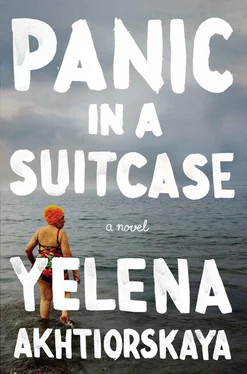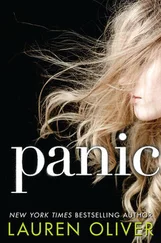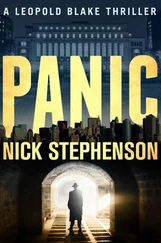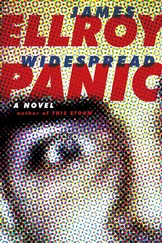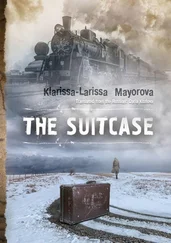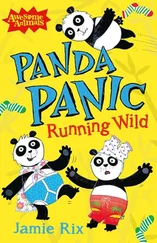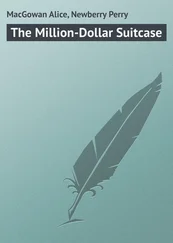Pasha and Sveta were, of course, relieved only now that they and their group, mainly poets from New York and a few from Moscow, could use their three remaining evenings in this locale to wander off in their own direction (or call a car service and pay a surprisingly reasonable fee to get to downtown Tbilisi — if they’d known it would be so reasonable, they might’ve tried it sooner). Wherever they went, others somehow sniffed it out and followed, feigning coincidence. They were the cool group insofar as there was still such a concept, and naturally there was, which didn’t matter much but was amusing to realize. Really, everything was going wonderfully. The weather was superb. There had been a misty rain in the beginning, just when they had gotten there, but it quickly dissipated and the sun came out and hadn’t left their side since. In the outdoor market in Poti, Pasha had bought a traditional Georgian vest and was wearing it daily. He felt he had reached the apex of maturity and could do something silly like wear a Georgian vest over his mature belly, a vest with colorful silk patches, exaggerated lapels, and tassels destined to be dipped in Tkemali sauce. In Pasha’s case maturing proved to be the opposite of what may be expected — it was the progression from seriousness to silliness, from rigidity to looseness. Nevertheless he would undoubtedly experience a pinch of regret when looking through the festival photos. Without realizing it he was wandering into everybody’s background, and that ridiculous vest made him extremely discernible, regardless of the degree of blur. The photos would be posted widely on the internet, both on the official festival website and on individual blogs, announcing Pasha as a fat man with a smug smirk in a pompous vest and thereby alienating even those he hadn’t managed to alienate personally. And if that didn’t do the trick, there was the unfortunate quote he gave the not-unattractive journalist covering the festival for Znamya . A slender blonde with thin lips and darting athletic eyes, she cornered Pasha to ask him a few questions. When he began to speak, she turned on the tape recorder. Nurzhan Bozhko overheard the answers Pasha gave and was stunned.
But I called the festival a stupendous success, said Pasha.
Yeah, said Nurzhan, and then proceeded to rant about the great majority of these so-called poets.
I don’t rant, said Pasha.
That’s true. You enlighten.
Bozhko, usually so miserly, bought Pasha a drink (Don’t protest, you need it), because it was truly impressive his talent for shooting himself in the foot — under no circumstances did Pasha fail. Pasha laughed, and downed his drink, and felt like a hero, until they got back to the hotel and Sveta began doing something with her long fingers and an oppressive cloud settled over Pasha, like a fat lady plopping down in his lap, an obese lady with a vulgar smell and bubbling laughter that rolled over him in thick waves and made the room go black. He was asleep.
The next morning Pasha ate a bigger breakfast than usual, sucked a few extra sugar cubes with his tea, and took the luxury bus alone (the others, Sveta included, were determined to sleep in) to the campgrounds to catch the panel on trends of new sincerity in bourgeois cosmopolitan poetry, which from the very start suffered from low blood pressure and quickly devolved into mutterings, non sequiturs, and short-lived eruptions of disoriented tittering. And gossip. It was the beginning of a long day. Even the sun shone in a timid, noncommittal way, sensing that it would have to be putting in a sustained effort. Pasha stood outside the tent where a roundtable debate about theories of translation was in progress, and though he had a few things to say on the subject, he wandered off instead. Fifteen years ago his shoulders had been like balance scales with a small grapefruit on the left scale and a large blood orange on the right; now on the right scale was truth and on the left murder in cold blood. Every step Pasha took looked like an attempt to settle this imbalance once and for all, but every step only further deepened it. He walked. He realized that his face muscles ached from squinting so hard, yet he could hardly see a thing, and at the same moment he was gripped, very distinctly, by the wish to run into Brodsky, to just nonchalantly run into him and get to talking. No greeting or introduction, just business. This was late Brodsky, who never got to be old man Brodsky. Late Brodsky was the equivalent of present Pasha. An odd, moist paleness under Brodsky’s eyes (that made his freckles look like bloated capsules of moldy water) would be the only sign he might not be feeling well. Otherwise, from his speech and manner, he might as well have been a man in his prime. They’d sit down in the shade somewhere, probably at a café where Brodsky could order a double espresso, though of course he shouldn’t have been drinking a double espresso, and within seconds Pasha would be engulfed in the smoke from Brodsky’s cigarette. The desire was so strong that Pasha even glanced up and searched for him in the crowds, which were growing, friends reuniting after their rest, after their nightmares. Pasha felt like a candidate for a heart attack. He went to get water and drank it down greedily, as if his thirst had been building for decades. As he drank, he was showing others, those standing around taking delicate sips from their tall glasses, just how superficial their thirst was. It had to be saved up, amassed. They shouldn’t have been drinking at all.
But after sitting down at a secluded table in the shade, getting comfortable, what exactly would Brodsky have said? At first he would’ve made some jokes, been a tad too jovial, protecting himself, but what about after that energy was out of the way? Did Pasha just want Brodsky to repeat the wise, funny things he’d already heard Brodsky say in brief impromptu clips and live interviews from festivals such as this, or did he want Brodsky to impart his slight lisp to the more substantial written interviews, articles, and profiles that Pasha had already read, as he’d read them all, with the only difference being that they be personally addressed to him? Did he want others, passing poets, to see in whose company he truly was? Or was it enough to watch the soft contour of Brodsky’s chin (he had no jaw, only chin) while seeing himself reflected in Brodsky’s round, wire-rimmed spectacles? Of course not. It was Pasha who had something to tell Brodsky. Something urgent. He needed to unburden. No — he needed to plead his case.
Was there a way to do that in one broad stroke? And where to begin? If for comprehensive purposes (and they were nothing if not comprehensive men) it was necessary to begin at the beginning, they’d be there for days or more likely weeks; he’d bore Brodsky to a second death. Pasha felt discouraged. He found a seat on a metal bleacher. A skinny woman with tense shoulders took a measured bite of her sandwich, the tinfoil like a cracked alien eggshell on her lap. He blocked the sun with his hand. In the distance the whitish shuttle bus was riding off and Sveta was entering the campgrounds. Not far behind, Bozhko was slinking along.
The fact of the matter, for one thing, was that the other night Pasha hadn’t intended to shoot himself in the foot. No offense had been meant. He’d simply been stating the obvious. They were happy to be hosted by Georgia, to be treated like VIPs, and they were all enjoying themselves immensely — though perhaps he should speak for himself. He was happy, he was enjoying. And from the exponentially growing numbers of participants, it was clear that the festival mission was a stupendous success, as he’d said. Russian-language poets from across the globe were meeting and getting acquainted with one another’s work, forging friendships and international partnerships, and so on. But did anybody really think it was possible that some hundred-plus Russian-language poets existed at any one time? A poet was born, not bred. The entire twentieth century had about a dozen (you among them, needless to say). And let’s be honest: Since when did poetry benefit from a breakfast-is-included mentality? A luxury bus picked up the poets outside the hotel lobby at eight, and there was a shuttle every half hour afterward for those who didn’t make it, transporting them with bathroom access to the campgrounds, where refreshments were served throughout the day. The poets had needed to know: Was the shuttle free of charge? Almost free, the Tbilisi representative had said, not quite. Be precise! There was a very minuscule fare, to be determined by each individual shuttle driver. This did not strike the poets as right. And eight A.M. was, by consensus, too early for the bus — how about nine-thirty? But events began at nine, and it was a half-hour drive on clear roads, which weren’t at all guaranteed. Pity the poet whose reading was scheduled for nine! Though perhaps, if things really got rolling, many would be awake not already but still.
Читать дальше
